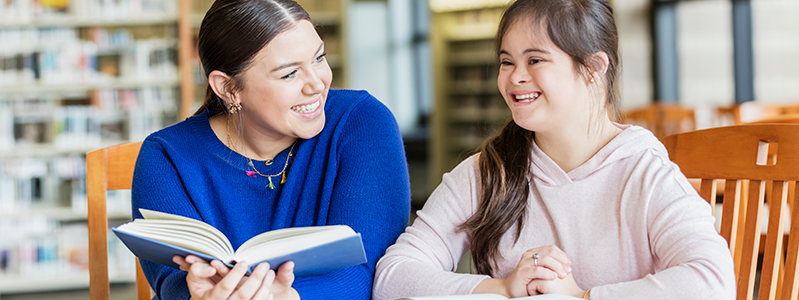
The U.S. Department of Education strives to expand educational opportunities and to improve instruction for all students. To achieve excellence in education for students with disabilities, Secretary of Education Margaret Spellings launched an initiative focused on improving teaching, learning, and assessing by increasing states’ capacity to provide rigorous assessment, instruction, and accountability for these students. The keys to this effort are instruction and assessment, relying on the most current and accurate information on how students with disabilities learn while also measuring student performance to ensure continuous growth and progress.
Student achievement is front and center in all our efforts. The Office of Special Education and Rehabilitative Services (OSERS), the Office of Elementary and Secondary Education (OESE), and the Institute for Education Sciences (IES) are collaborating and linking their programs together to support states’ efforts to improve instruction and assessment of all students with disabilities.
To support this initiative, the Department has developed a Tool Kit on Teaching and Assessing Students with Disabilities (Tool Kit), which offers a compilation of information that will move states forward in improving results for all students with disabilities.
The Tool Kit includes information about the Department’s investments, papers on large-scale assessment, technical assistance (TA) products, and resources. The section on large-scale assessment includes a collection of seven papers and a glossary that address key issues related to the participation of students with disabilities in these standards-based assessments. The TA products are divided into four substantive areas: Assessment, Instructional Practices, Behavior, and Accommodations.
For each area, users will find a description of each resource, including its citation and target audience.
This Tool Kit is an example of the Department of Education’s ongoing commitment to ensuring that states, local school districts, schools, and families have the most current and relevant information about practices that will improve and enhance educational opportunities for students with disabilities throughout the nation.
This toolkit was created in 2004.

Models for Large-Scale Assessment for Students with Disabilities
To ensure continuous growth and progress, large-scale assessments are necessary to measure the performance of students with disabilities. This section includes a collection of seven papers and a glossary that address key issues related to their participation in standards-based assessments.

Technical Assistance Products
Evidence-based practices have been proven to improve results for students with disabilities. The following technical Assistance products present these educational practices in Assessment, Alternate Assessment, Progress Monitoring and Response to Intervention.

Instructional Practices
By selecting research-based approaches, providing needed resources and support to teachers, and evaluating student outcomes, educators will ensure the success of their efforts to improve secondary students’ skills. This section includes resources for improving instructional practices in K-3 Literacy, Social Interaction and Communication, and adolescent Literacy.

Behavior
To improve educational outcomes for youth with disabilities, there must be concrete efforts to understand the critical practices and systems of positive behavior support. These materials have been developed to assist local and state education agents in their efforts to improve school climate and positive behavior support for all students.

Resources
Find further resources on teaching and assessing students with disabilities here.